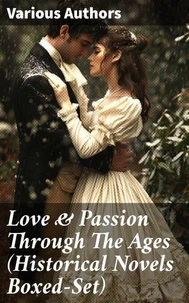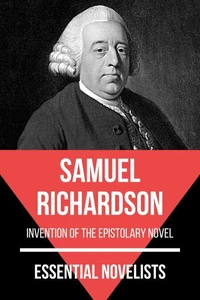Pamela, or Virtue Rewarded
Par :Formats :
Disponible dans votre compte client Decitre ou Furet du Nord dès validation de votre commande. Le format ePub est :
- Compatible avec une lecture sur My Vivlio (smartphone, tablette, ordinateur)
- Compatible avec une lecture sur liseuses Vivlio
- Pour les liseuses autres que Vivlio, vous devez utiliser le logiciel Adobe Digital Edition. Non compatible avec la lecture sur les liseuses Kindle, Remarkable et Sony
 , qui est-ce ?
, qui est-ce ?Notre partenaire de plateforme de lecture numérique où vous retrouverez l'ensemble de vos ebooks gratuitement
Pour en savoir plus sur nos ebooks, consultez notre aide en ligne ici
- Nombre de pages500
- FormatePub
- ISBN859-65--4706247-9
- EAN8596547062479
- Date de parution13/06/2022
- Protection num.Digital Watermarking
- Taille695 Ko
- Infos supplémentairesepub
- ÉditeurDIGICAT
Résumé
In "Pamela, or Virtue Rewarded, " Samuel Richardson crafts an epistolary novel that intricately explores themes of virtue, social class, and the condition of women in the 18th century. The narrative unfolds through a series of letters penned by the virtuous young maid, Pamela Andrews, as she navigates the advances of her master, Mr. B, who initially seeks to exploit her but ultimately becomes enamored with her integrity.
Richardson's writing style is marked by its meticulous attention to character psychology and moral dilemmas, engaging readers in a moral discourse over virtue and morality that was particularly resonant in the context of emerging middle-class sentiments and shifting gender roles of the Enlightenment period. Samuel Richardson, a prominent figure in the transition from 17th-century literary traditions to the novel as a distinct form, drew on his experiences in the printing trade and as a social observer to create this pioneering work.
His understanding of human psychology and societal norms influenced his portrayal of Pamela as a quintessential example of virtue in a corrupt society, effectively reflecting the contemporary debates surrounding class, gender, and the role of women in public and private spheres. "Pamela, or Virtue Rewarded" remains a seminal text for readers and scholars alike, offering a deep dive into the complexities of personal integrity amidst societal pressures.
It invites contemporary readers to reflect on the timeless struggles against moral compromise and the intricate dynamics of power in relationships, making it a compelling read for anyone interested in the foundations of the novel and the evolution of feminist thought.
Richardson's writing style is marked by its meticulous attention to character psychology and moral dilemmas, engaging readers in a moral discourse over virtue and morality that was particularly resonant in the context of emerging middle-class sentiments and shifting gender roles of the Enlightenment period. Samuel Richardson, a prominent figure in the transition from 17th-century literary traditions to the novel as a distinct form, drew on his experiences in the printing trade and as a social observer to create this pioneering work.
His understanding of human psychology and societal norms influenced his portrayal of Pamela as a quintessential example of virtue in a corrupt society, effectively reflecting the contemporary debates surrounding class, gender, and the role of women in public and private spheres. "Pamela, or Virtue Rewarded" remains a seminal text for readers and scholars alike, offering a deep dive into the complexities of personal integrity amidst societal pressures.
It invites contemporary readers to reflect on the timeless struggles against moral compromise and the intricate dynamics of power in relationships, making it a compelling read for anyone interested in the foundations of the novel and the evolution of feminist thought.
In "Pamela, or Virtue Rewarded, " Samuel Richardson crafts an epistolary novel that intricately explores themes of virtue, social class, and the condition of women in the 18th century. The narrative unfolds through a series of letters penned by the virtuous young maid, Pamela Andrews, as she navigates the advances of her master, Mr. B, who initially seeks to exploit her but ultimately becomes enamored with her integrity.
Richardson's writing style is marked by its meticulous attention to character psychology and moral dilemmas, engaging readers in a moral discourse over virtue and morality that was particularly resonant in the context of emerging middle-class sentiments and shifting gender roles of the Enlightenment period. Samuel Richardson, a prominent figure in the transition from 17th-century literary traditions to the novel as a distinct form, drew on his experiences in the printing trade and as a social observer to create this pioneering work.
His understanding of human psychology and societal norms influenced his portrayal of Pamela as a quintessential example of virtue in a corrupt society, effectively reflecting the contemporary debates surrounding class, gender, and the role of women in public and private spheres. "Pamela, or Virtue Rewarded" remains a seminal text for readers and scholars alike, offering a deep dive into the complexities of personal integrity amidst societal pressures.
It invites contemporary readers to reflect on the timeless struggles against moral compromise and the intricate dynamics of power in relationships, making it a compelling read for anyone interested in the foundations of the novel and the evolution of feminist thought.
Richardson's writing style is marked by its meticulous attention to character psychology and moral dilemmas, engaging readers in a moral discourse over virtue and morality that was particularly resonant in the context of emerging middle-class sentiments and shifting gender roles of the Enlightenment period. Samuel Richardson, a prominent figure in the transition from 17th-century literary traditions to the novel as a distinct form, drew on his experiences in the printing trade and as a social observer to create this pioneering work.
His understanding of human psychology and societal norms influenced his portrayal of Pamela as a quintessential example of virtue in a corrupt society, effectively reflecting the contemporary debates surrounding class, gender, and the role of women in public and private spheres. "Pamela, or Virtue Rewarded" remains a seminal text for readers and scholars alike, offering a deep dive into the complexities of personal integrity amidst societal pressures.
It invites contemporary readers to reflect on the timeless struggles against moral compromise and the intricate dynamics of power in relationships, making it a compelling read for anyone interested in the foundations of the novel and the evolution of feminist thought.








